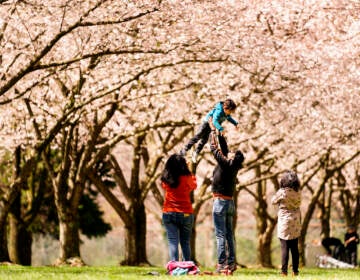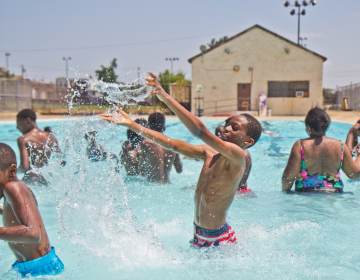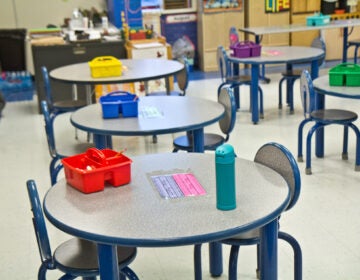Meet the heroes making Philly’s parks safer
Amid a spate of violence at Philadelphia parks, one North Philly man has made his neighborhood park safer using Jell-o, paintbrushes, and conversation.
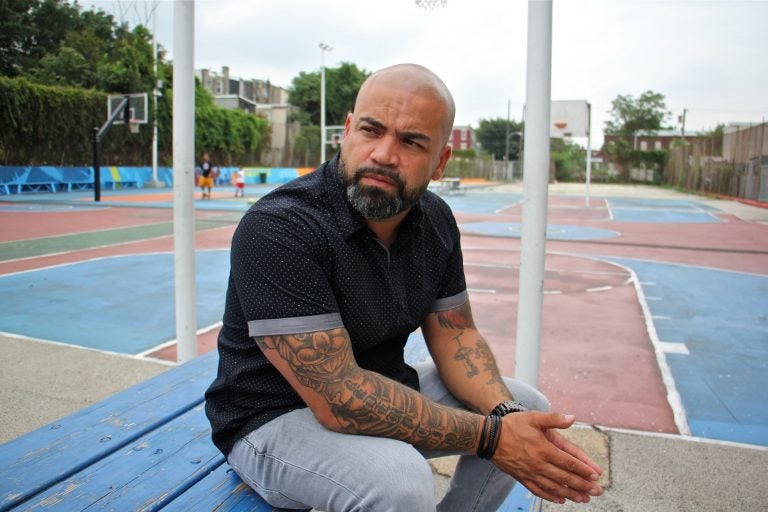
Edwin Desamour at Waterloo playground. (Emma Lee/WHYY)
Dread fills Edwin Desamour every time he hears about violence breaking out at a city park or playground.
This summer, the sensation has overcome the North Philadelphia father a handful of times.
The graduation party that ended in a hail of deadly bullets. The community cookout broken up with shots. And last week, a pickup basketball game interrupted by gunfire. City officials can name at least five violent incidents that broke out in or around city parks and rec sites this summer.
“You’re hoping no one was killed, especially a kid,” Desamour said, as he took a break from handing out Jell-o to two young children playing at Waterloo Playground, the West Kensington park he’s worked tirelessly to turn into a “sanctuary” for the past several years.
Desamour was once one of those kids hanging out in his North Philly neighborhood. He remembers getting his first black eye at Waterloo. Now, he prevents them as a community leader and community liaison for the city’s Department of Parks and Recreation.
“Sometimes, you could be like, ‘Oh my god, this is a recipe for disaster,’ because you hear the arguments,” Desamour said. “But at the same time, I rather have them all of them here than on the corner selling drugs or shooting a gun. The only thing they should be shooting is basketballs.”
The summer’s violence has inspired calls across the city to increase safety and security at parks. Mayor Jim Kenney has ordered a greater police presence at park events, and City Council President Darrell Clarke has called for a law banning guns at city rec centers. But Desamour believes in a different way — the community-based approach he’s seen work at Waterloo.
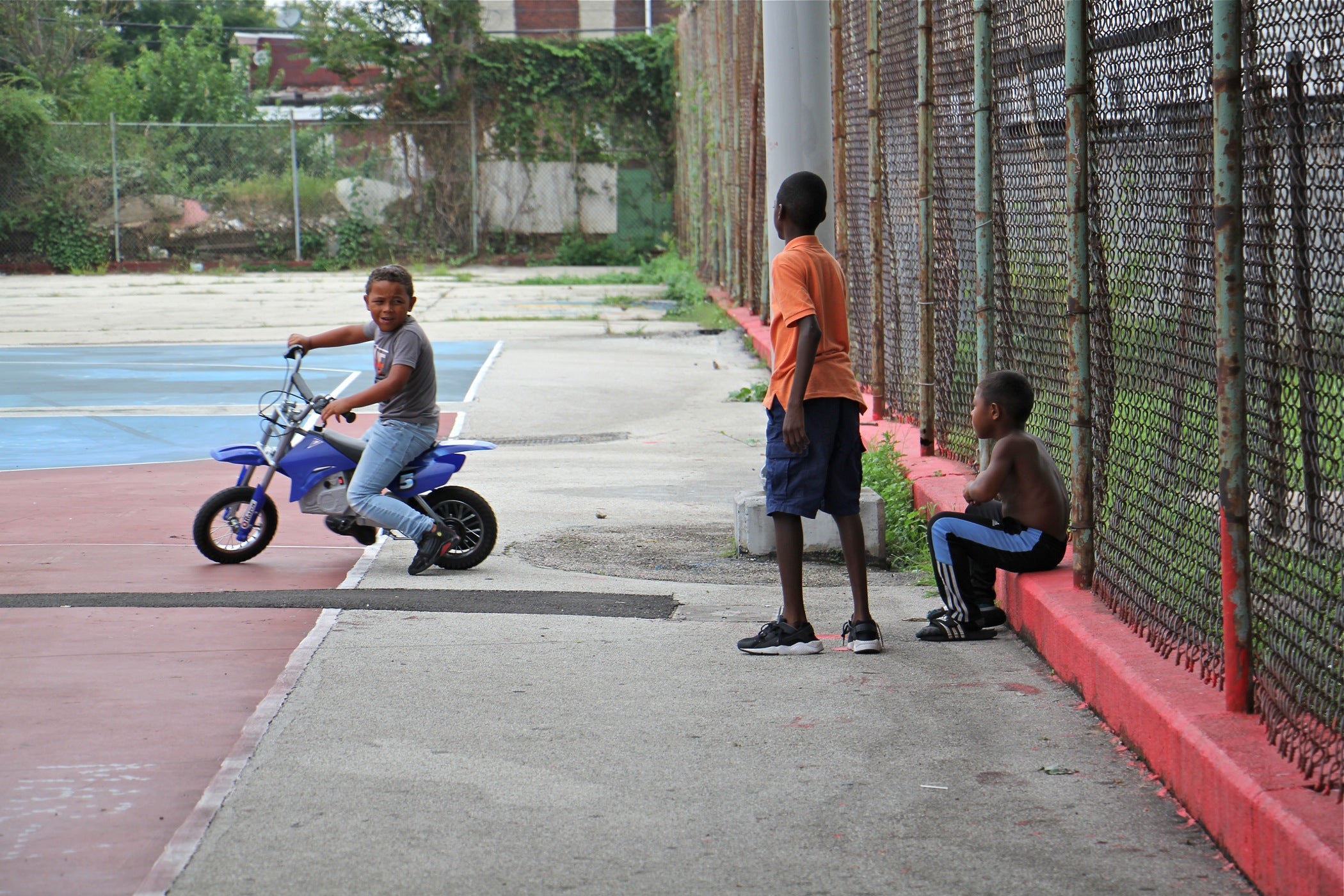
The Waterloo experiment
Desamour keeps a newspaper clipping of him in handcuffs above his office desk.
“It’s a reminder to myself of change and redemption,” he said.
Desamour’s past informs a lot of what he does.
Before Desamour worked for Parks and Rec, he was just an activist trying to give back and make up for past wrongdoings, but renovating the park proved a difficult challenge.
When he first tried to rally neighbors to spruce up the littered and graffitied playground, weeks would pass without a soul showing up to his community meetings, Desamour said. It wasn’t until the community received $200,000 and partnered with the nonprofits Urban Roots and the Make the World Better Foundation in 2016 that the park really started to become a communal project.
“It’s hard to get people invested without a physical investment,” Parks and Recreation Commissioner Kathryn Ott Lovell said. “You can do it, and it happens every day, but a physical investment is restorative for a community. In many ways, it’s seductive for a community, it brings people back out to the table.”
Last summer, Waterloo’s basketball courts and pool underwent renovations, and funds from the city’s Rebuild initiative for additional improvements are on the way. But financial investments can’t solve every problem.
At Waterloo, someone had to convince the kids to stop graffitiing the rec center, and the drug dealers to keep their business out of the park. Desamour was that guy. He remembers telling them, “I don’t want you selling drugs here, but I want your family here.”
Another priority: getting neighbors, including children, to help with the park makeover. Under his watch, kids and other adults from the neighborhood were part of a team building new benches and tables for the park.
“When you have a resident picking up a paintbrush and putting their work into it, why would they want to destroy something that’s theirs?” Desamour asked.
With time, the coalition of neighbors helping with cleanups and odd jobs like painting fences grew. Now, there’s a network of guardians who can keep an eye on the playground late at night, when Desamour isn’t around.
“That’s the beautification to me,” said Desamour. “Having a beautiful playground, I’m excited about it. That’s something that’s really going to bring life to everything, but the beautiful part is including people in everything.”
Police have a role, he said. But now, residents know “how to call and when to call” police, thanks to a better relationship with officers in the district, he said.
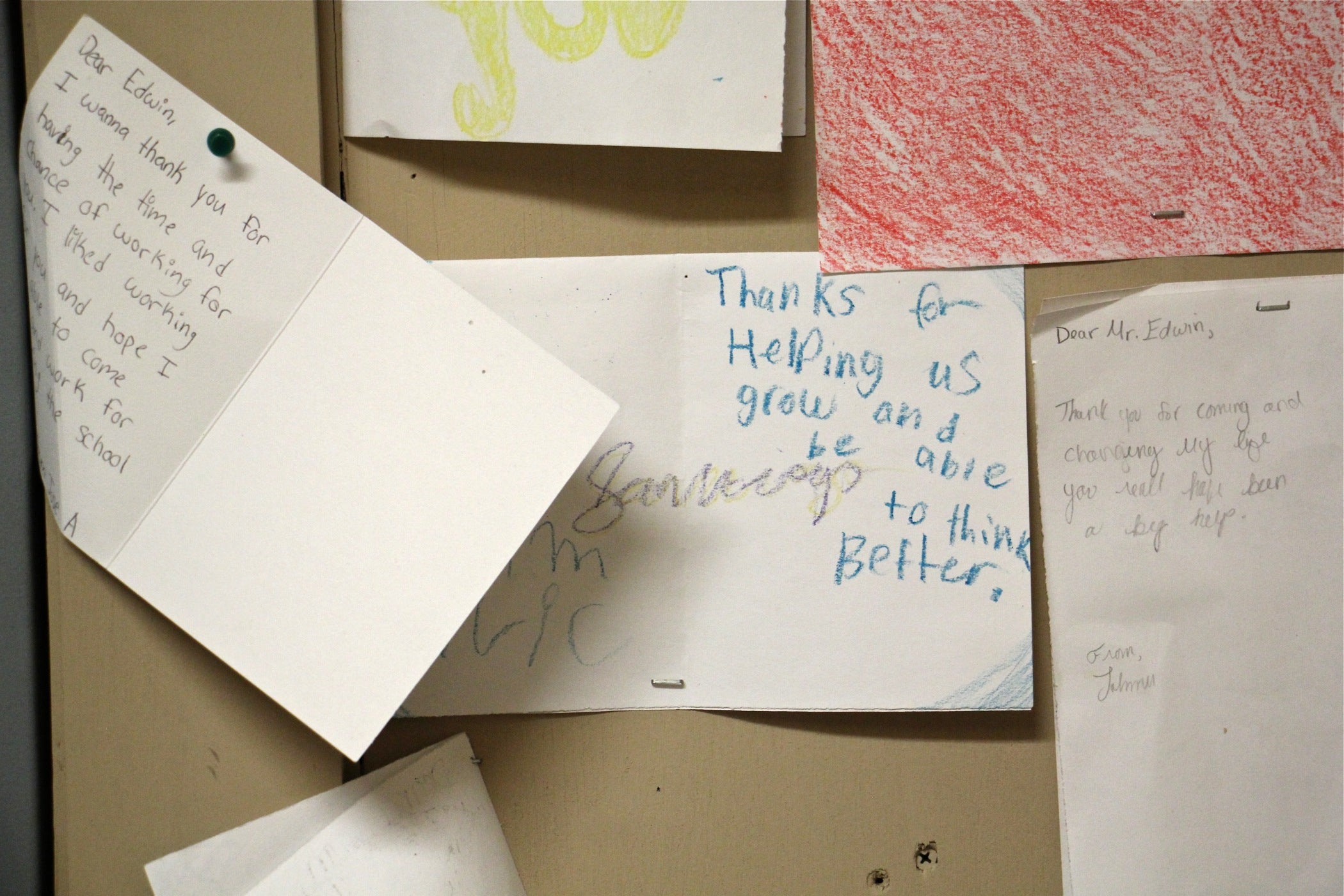
A constant effort
Desamour can rattle off example after example of close calls, instances when a fight could have broken out, or worse.
The Waterloo approach requires constantly supervising young people and talking to them. Talking to them even at times when they probably don’t want to see an adult.
On a recent muggy afternoon, Desamour was sitting on one of the benches made by children, talking to a reporter. Two young brothers playing nearby began screaming at each other. The smaller boy hit his sibling with a ball. His brother retaliated with a hit back. It was clear the little guy was not going to take it.
Desamour paused the interview to go sit down with the boys at the rec center.
The children don’t have a stable home life and live in a violent part of the neighborhood, Desamour said, so they need a little help figuring out an appropriate response to the situation.
Desamour offered them Jell-o cups and a truce was called.
“Those are the things that we can manage, can handle and sit down, and get them playing again,” he said. “But we can’t have someone shot and then have them play basketball again — one’s in prison, one’s dead.”
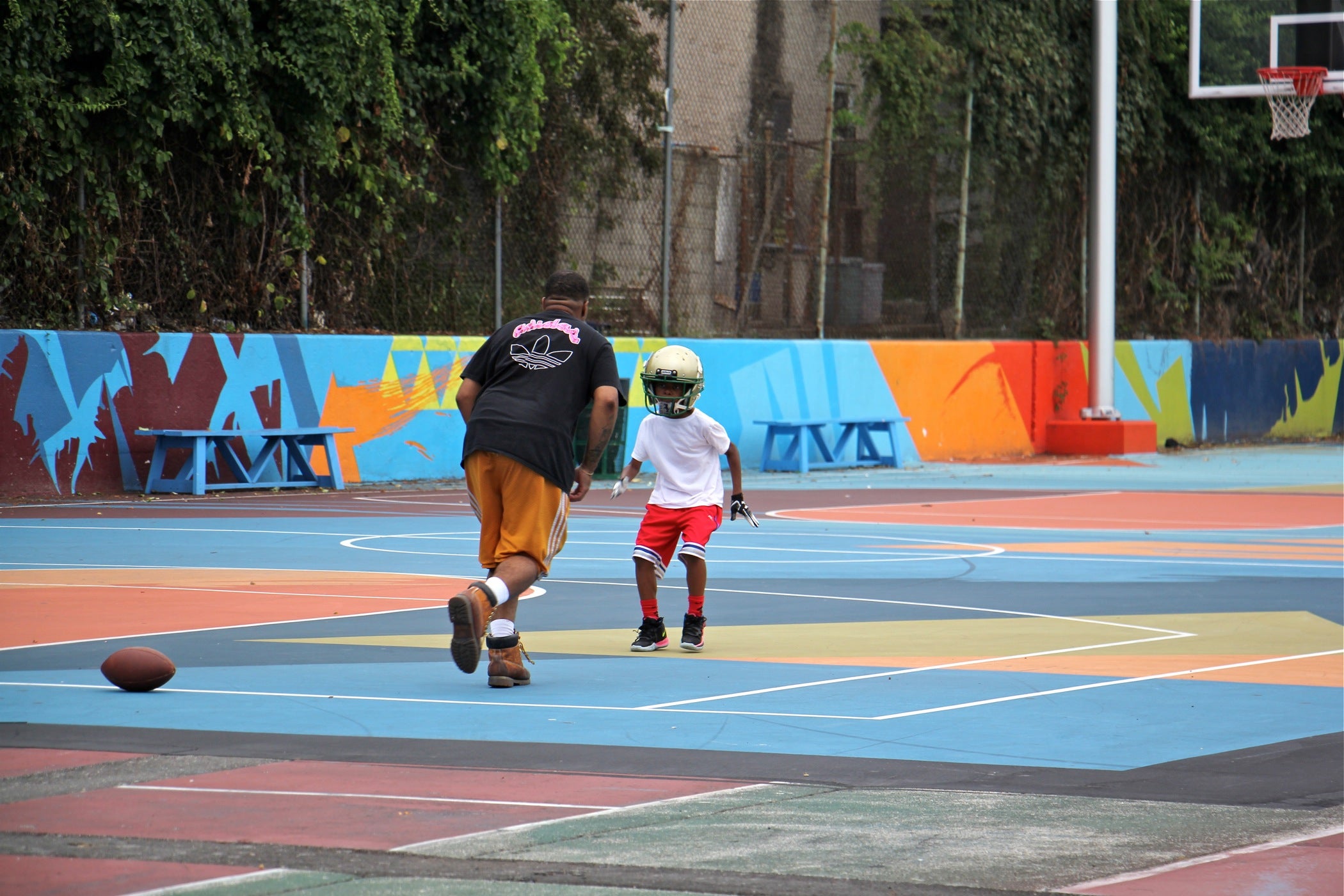
Parks & Rec wants to transform neighborhoods, but can it help address violence?
It’s not a coincidence that Desamour works for Parks and Rec.
There are people all across the agency’s parks — unsung heroes performing daily acts of “micro-heroism,” Ott Lovell said.
The commissioner sees Desamour’s work at Waterloo as a success she hopes the department can replicate at other city rec centers.
Though the agency has in the past focused its mission around health and the environment, she believes that parks and the leaders there play a role in solving all kinds of problems in communities.
“What Philly’s doing that’s really innovative is saying that we believe that we can transform neighborhoods by making public space investments,” she said.
Ott Lovell’s department announced last weekend that 12 recreation centers will stay open with extended weekend hours until September, and at some locations, up to October. Also new is a 12-week basketball pilot, in which children get to play and pick up leadership skills, and a series of Cops & Rec film screenings. The series began in August and will continue through October. Parks brings the movies, and the police bring treats.
But no one believes that efforts like these are enough to solve an epidemic as complex as gun violence. Ott Lovell stressed there are hard limits to what her agency can achieve.
“I don’t want to say that making a $3 million, or even a $3, investment in a space is going to stop gun violence — it’s not,” she said. “That’s a separate issue that exists in our city.”
She said what the department can do is create safe havens, “so that we can keep communities, and young people, especially, as safe as possible when they’re in our care.”
WHYY is your source for fact-based, in-depth journalism and information. As a nonprofit organization, we rely on financial support from readers like you. Please give today.




